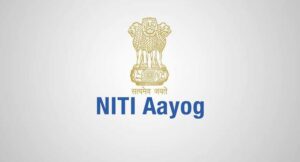Several hospitals in the Sunshine State, including six in Central Florida, are suing UnitedHealthcare for underpaying for emergency services provided, according to court records.
The suit alleges that the healthcare company failed to pay the amount required by Florida law for the services the hospitals offered.
“United has unilaterally and consistently decided to underpay the Hospitals these claims at only a fraction of the billed charges, at amounts well below the level of payment required by Florida statute,” according to the lawsuit.
In Central Florida, Osceola Regional Hospital, Central Florida Regional Hospital, Poinciana Medical Center, Marion Community Hospital, Oviedo Medical Center and UCF Lake Nona Hospital are listed on the suit along with 11 others in Florida. All of the hospitals listed in the suit are part of HCA Healthcare, Inc.
According to court records, none of the claims involve Medicare Advantage or Managed Medicaid plans.
“The claims at issue in this litigation involve only Affordable Care Act health insurance exchange products,” according to the suit.
The hospitals named in the suit seek damages in the amount of the difference of what UnitedHealthcare paid for the emergency services and the usual provider charges for similar services in the community where they were provided.
The hospitals named in the suit are:
- Osceola Regional Hospital
- Central Florida Regional Hospital
- Poinciana Medical Center
- Oviedo Medical Center
- Marion Community Hospital
- UCF Lake Nona Hospital
- Putnam Community Medical Center of North
- North Florida Regional Medical Center
- Notami Hospitals of Florida
- West Florida Regional Medical Center
- Fort Walton Beach Medical
- Tallahassee Medical Center
- Okaloosa Hospital
- Bay Hospital
- Lawnwood Medical Center
- Okeechobee Hospital
- HCA Florida St. Lucie Hospital
The suit continues, saying in part that even though the hospitals listed and UnitedHealthcare do not have a contract, the hospitals must still provide emergency services to any patients who seek care at their facilities.
“Despite being excluded from United’s HIX plan network, the Hospitals provided emergency services and care to United HIX Members on more than 5,500 occasions from January 2022 through the present, and continue to do so on a daily or almost-daily basis.”
According to the lawsuit, the hospitals allege that UnitedHealthcare’s strategy for paying for out-of-network providers is “motivated by its desire to maximize its own profits at the expense of the very hospitals that care for its Members.” ClickOrlando









